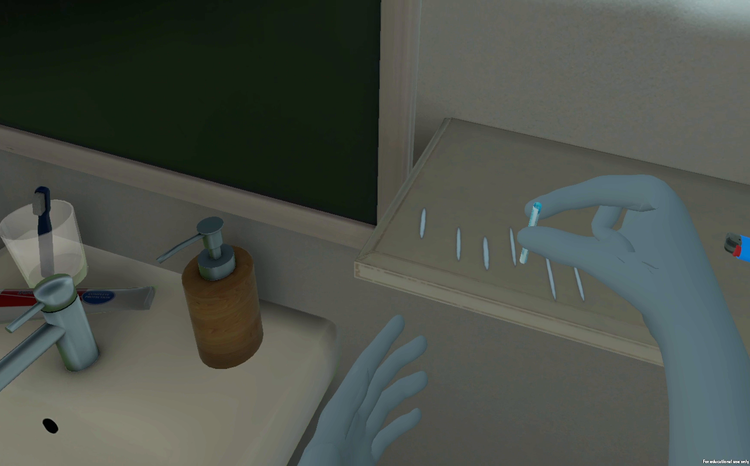US SNOMED Licence Raises Questions Over NHS Deal
- 10 July 2003
A $32.4m contract signed by the College of American Pathologists (CAP) and the US National Library of Medicine will make English and Spanish versions of SNOMED clinical terms – developed in collaboration with the NHS – available free-of-charge in the US from 2004. It is unclear, however, whether the NHS, as major investors in and contributors to the terminology, will receive any money from the deal.
Indeed, the NHS has paid out significant sums to participate in the SNOMED enterprise and contributed intellectual property in the form of the Read Codes.
E-Health Insider asked the CAP whether the NHS would receive a share of the five-year US licence fee or fees from any subsequent licences sold in other domains. Though the enquiry was acknowledged, there was no response to the question.
The NHS Information Authority, which lists SNOMED CT as one of its work programmes, declined to comment on whether the NHS would be a recipient of a share of the US licence fee announced last week saying that it needed confirmation of any statement it made about such matters from the CAP. A spokesperson issued a statement saying: “We are delighted that the US Government has agreed that SNOMED CT, which has been developed jointly by the NHS and the College of American Pathologists (CAP), can now be used freely by health organisations in the USA.”
The NHS’ contribution to SNOMED CT is substantial. Answering a Parliamentary Question on 22 October 2001, the then health minister Hazel Blears said that the NHS was committed to contributing $3m for each of the three years beginning April 1999 to SNOMED CT and its earlier versions.
She continued: “The contribution is made up of the value of the work supplied with any shortfall being a cash payment. Additional costs arise from funding NHS representation on joint boards. For 2001-2 this was estimated to be approximately £160,000.”
According to a statement issued by the CAP in August 2001, SNOMED CT combines the expertise of SNOMED RT – an earlier version of the terms – and the NHS’ Clinical Terms Version 3 (Read Codes). Sites in the UK were involved in testing the terminology.
It is understood the NHS deal includes a life-long, royalty-free licence to use SNOMED CT within the service. However, following the US licensing deal, SNOMED CT, is likely to become a de facto international standard and sales to other countries may well follow.
The NHSIA’s statement continued: ”Alignment between the USA and the UK strengthens the NHS’ approach and endorses our long-term commitment to develop, support and make available the best clinical terminology.
"SNOMED CT is in the process of being formally adopted in the NHS and will form a requirement for all new systems introduced through the proposed Integrated Care Record Service, central to delivery of the National Programme for Information Technology.”
The five year contract between the CAP and the US National Library of Medicine (NLM) will make the terminology available free to any public, for-profit or non-profit organisation located, incorporated and operating in the US. It is set to encourage much broader use of electronic records and consistency in health record keeping.
The SNOMED terminology is considered to be the most comprehensive in the world. The college’s announcement of the US-wide deal says, “This terminology has been developed in collaboration with the United Kingdom’s National Health Service and was based on content contributed by both organisations.”
It adds that the investment of federal resources, through the deal with the NLM, will make the use of SNOMED CT in electronic patient records more affordable and easier to implement for many more American health organisations.
“When built into electronic medical records products, SNOMED CT enables primary and specialty care providers and patients to share comparable data at any time, from any place. This ability has the potential of greatly reducing medical errors associated with traditional paper records,” the college’s announcement says.
The move to adopt SNOMED CT nationally has received an enthusiastic response and top level support. In an address to an America Medical Association conference in March President George W. Bush recognised the difficulties caused by paper records “kept in different formats” and pledged to increase funding to help hospitals use IT to keep better records.
Health and Human Services Secretary, Tommy G. Thompson, said: “With this initiative, we have taken a major step to clear the way for broader use of electronic medical records in the US. This effort will prove invaluable in the automated exchange of clinical information needed to protect patient safety, detect emerging public health threats, better co-ordinate patient care and compile research data for patients in clinical trials.”
John Mattison, assistant medical director for clinical systems for healthcare providers, Kaiser Permanente, commented: “What the NLM is doing through this SNOMED CT licence is allowing all institutions, all vendors and all locations to use the same vocabulary across all systems. It’s hard to overstate the significance of this. It’s going to be a watershed for the healthcare of the entire American public.”
McKesson Information Solutions announced this week that it would incorporate SNOMED into its Horizon Clinicals suite, which is described by the company as a next-generation, integrated offering for physicians, nurses, pharmacists and other clinicians across a variety of care settings.




